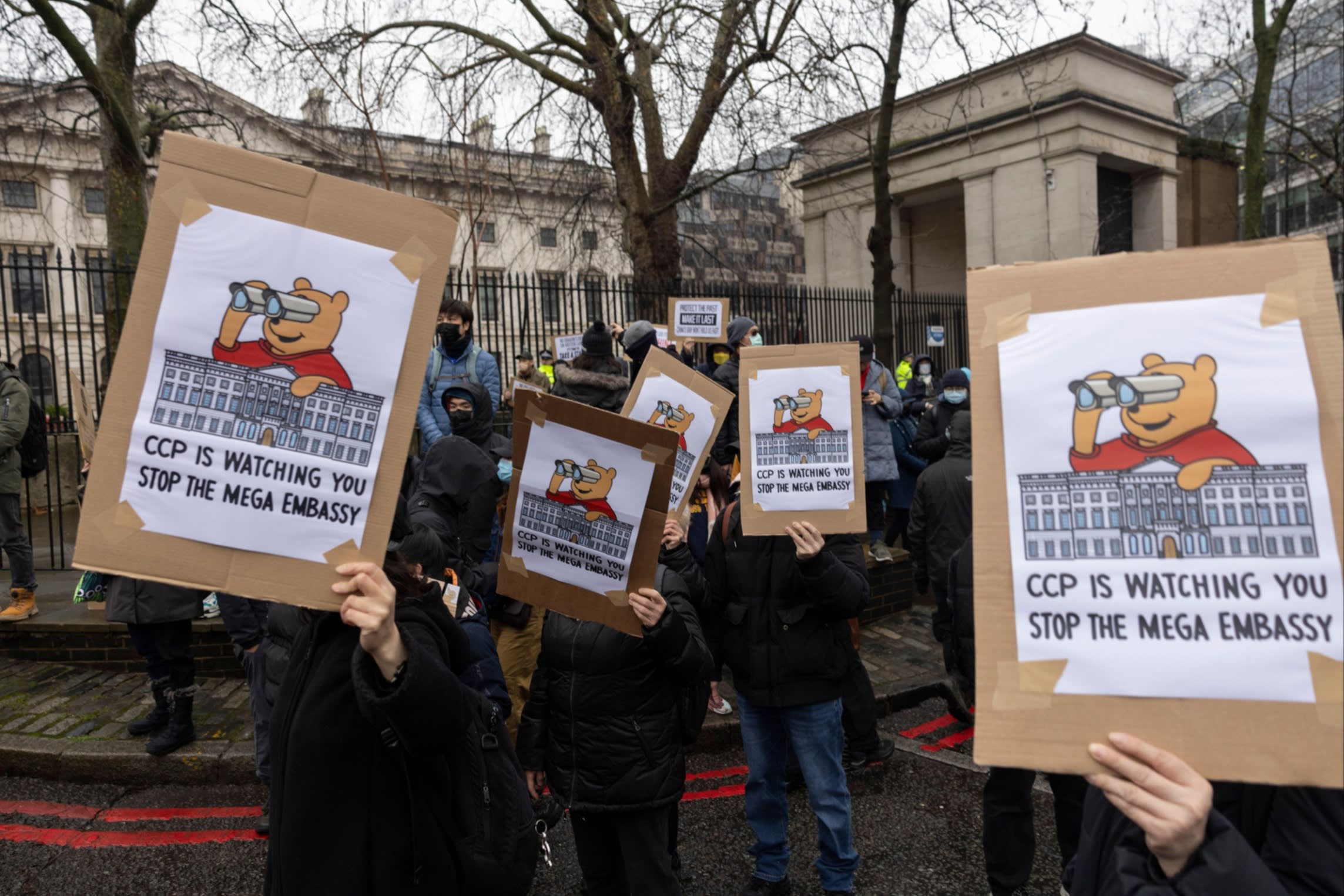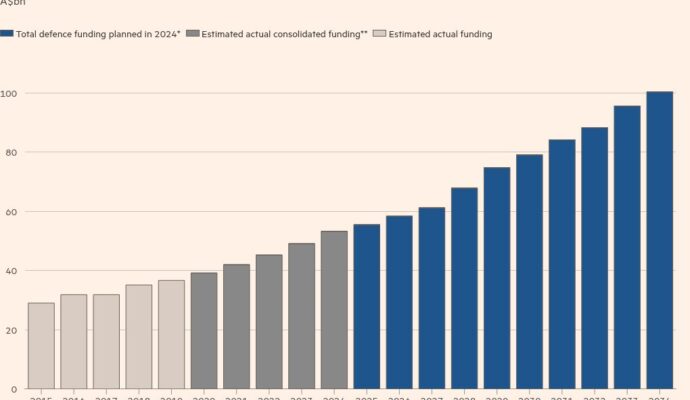Unlock the Editor’s Digest for free
Roula Khalaf, Editor of the FT, selects her favourite stories in this weekly newsletter.
Deputy prime minister Angela Rayner has demanded additional information from China over its plans for a new “mega” embassy in London after several of its drawings contained areas that were blacked out.
A letter sent by Rayner’s housing department demands the embassy provides unredacted drawings of the plans or “identify precisely and comprehensively” the parts that have been withheld and to “explain the rationale and justification” for the redactions.
The letter, sent on Wednesday and seen by the Financial Times, gives the Chinese embassy just two weeks to respond, saying that a full decision must be made by the UK government by September 9. The late objection raises the prospect that ministers may reject the plans, which have been criticised by the White House.
The letter states that two buildings on the drawings — the Cultural Exchange Building and Embassy House — have been “greyed out”.
These “are marked on their face as being ‘redacted for security reasons’, and it appears that this may refer, at least principally, to the internal physical arrangements”, it added. Other buildings are also marked as being at least partly redacted.
The letter also flags that the Home Office has requested a “hard perimeter” around the embassy site that could represent “a material amendment to the application that would require further consultation”.
It added that “consideration of this case is at an early stage, and no view has yet been formed”.

The new embassy China plans would be opposite the Tower of London and would be the largest in Europe, sitting on a 5-acre site, with critics warning the so-called “mega” embassy would inevitably be home to an increased number of spies and could be used to harass Chinese dissidents.
In late June the White House was reported to have expressed “deep concern” over the project, warning that the site’s location on the edge of the City of London means it runs over a host of vital communications cables, including those utilised by US banks. MPs in the Netherlands have raised similar concerns to the US.
The former Royal Mint Court site was sold to China in 2018 by the previous Conservative government for £255mn, despite centuries of history around the site.
Luke de Pulford, executive director of the Inter-Parliamentary Alliance on China, which has been a long-standing critic of the embassy, said he was hopeful the government was looking for technical reasons to turn the site down, though feared it could still get approved.
“Either the government has finally seen the light and is finding reasons to refuse this disastrous plan, or trying to look tough and has struck a deal with Beijing,” de Pulford said.
“If the former, this is hugely welcome and a massive volte-face.”
The UK government is already walking a difficult line with China, trying to encourage investment while not upsetting the Trump administration in the US, which views Beijing as America’s most serious rival.
Matthew Pennycook, the minister of state for housing and planning, told MPs in June that “only material planning considerations can be taken into account in determining this case” but acknowledged that could include “safety and national security”.
In June the UK warned that Beijing has been increasing efforts to spy on Britain and to undermine its democracy and economic security, while still saying it wanted to boost trade with China.
The government called in the planning proposal last year, moving decision making from local to central government, after Tower Hamlets council raised a number of security concerns.
China has in the past accused “anti-China forces” of attacking the embassy planning process. China’s embassy in London did not immediately respond to a request for comment on Wednesday.
Pulford added he struggled to see “how China can meet the conditions”, laid out in the letter given it “clearly requires a new planning application to be submitted to meet the home secretary’s request for a hard perimeter around the site”.
Earlier this month campaigners against the embassy expressed concern that an announcement approving the project could be made over the summer, when parliament is in recess.
The Ministry of Housing, Communities and Local Government declined to comment, saying that it was a live decision before the department.


